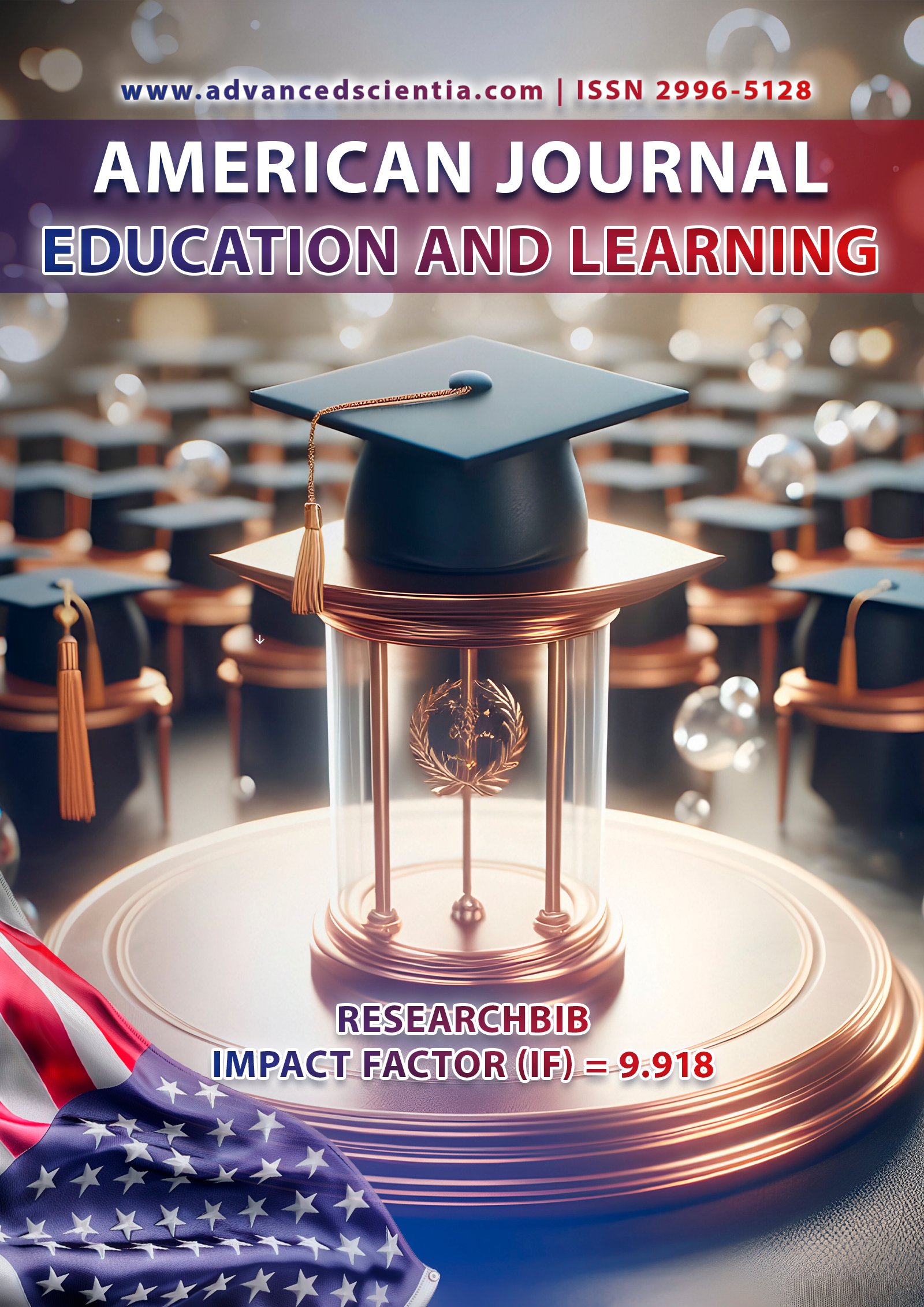THEORETICAL AND METHODOLOGICAL FOUNDATIONS OF TEACHING PROFESSIONALLY ORIENTED VOCABULARY IN THE CHINESE LANGUAGE
Abstract
The increasing role of China in the global economy, trade, politics, and cultural exchange has generated an urgent need for effective methods of teaching Chinese as a foreign language. One of the most crucial components in this process is the acquisition of professionally oriented vocabulary, which equips learners with linguistic tools necessary for successful communication in specialized domains such as business, law, diplomacy, technology, and medicine. This article investigates the theoretical and methodological foundations of teaching professionally oriented vocabulary in the Chinese language. The study examines conceptual approaches to the definition of “professionally oriented vocabulary,” explores principles of cognitive linguistics, communicative methodology, and intercultural competence, and proposes pedagogical strategies for integrating specialized vocabulary into language teaching. The research emphasizes the necessity of interdisciplinary integration, modern digital technologies, and learner-centered approaches in enhancing the efficiency of vocabulary acquisition.
References
1. Canale, M., & Swain, M. (1980). Theoretical bases of communicative approaches to second language teaching and testing. Applied Linguistics, 1(1), 1–47. https://doi.org/10.1093/applin/I.1.1
2. Dudley-Evans, T., & St John, M. J. (1998). Developments in English for Specific Purposes: A multi-disciplinary approach. Cambridge University Press.
3. Hutchinson, T., & Waters, A. (1987). English for Specific Purposes: A learning-centred approach. Cambridge University Press.
4. Krashen, S. D. (1985). The Input Hypothesis: Issues and implications. Longman.
5. Lewis, M. (1993). The Lexical Approach: The state of ELT and a way forward. Language Teaching Publications.
6. Nation, I. S. P. (2001). Learning Vocabulary in Another Language. Cambridge University Press.
7. Richards, J. C., & Rodgers, T. S. (2014). Approaches and Methods in Language Teaching (3rd ed.). Cambridge University Press.
8. Swales, J. M. (1990). Genre Analysis: English in academic and research settings. Cambridge University Press.
9. Vygotsky, L. S. (1978). Mind in Society: The development of higher psychological processes. Harvard University Press.
10. Wen, Q. F. (2012). Teaching Chinese as a second/foreign language in the new century: A Chinese perspective. Chinese Language Teaching Methodology and Technology, 1(1), 1–15.
11. Xu, L. (2015). Vocabulary acquisition in Chinese as a foreign language: A corpus-based approach. Journal of Chinese Linguistics, 43(2), 389–412.
12. Zhang, W. (2017). Professionally oriented Chinese language teaching: Issues and strategies. International Journal of Chinese Language Education, 2(3), 55–72.
Rustamova, I. K., & Abbosova, I. A. (2020). Characteristics of cognitive disorders and quality of life in patients with chronic second brain ischemia. Вестник Казахского Национального медицинского университета, (2-1), 626-627.
ABBASOVA, I., & NAZAROVA, J. (2024). SPECTRUM OF AUTONOMIC NERVOUS SYSTEM DISORDERS IN THE ELDERLY DEPENDING ON GENDER. The American Journal of Medical Sciences and Pharmaceutical Research, 6(11), 19-22.
Mamadinova, L. K., Nazarova, J. A., Kasimova, S. A., Kayumova, N. K., Abbosova, I. A., & Mukarramov, U. (2022). ANALYSIS OF ELECTRONEUROMYOGRAPHIC PARAMETERS IN PATIENTS WITH TYPE 2 DIABETES DEPENDING ON BODY MASS INDEX. Journal of Pharmaceutical Negative Results, 13.
Abbosova, I., Nazarova, J., & Rustamova, I. (2022). Indicators of Heart Rate Variability in Elderly Persons with Autonomic Dystonia Syndrom. Annals of Pharma Research, 10(01), 646-649.
Abbosova, I., & Rustamova, I. (2022). AUTONOMIC NERVOUS SYSTEM RESEARCH INDICATORS IN THE ELDERS. The American Journal of Medical Sciences and Pharmaceutical Research, 4(01), 35-39.
Rustamova, I. K., Abbosova, I. A., Kuchkarova, O. B., & Kasimova, S. A. (2021). Vocal TIC (Case from practice). ACADEMICIA: AN INTERNATIONAL MULTIDISCIPLINARY RESEARCH JOURNAL, 11(1), 952-956.
Аббосова, И. А., & Фозилжонов, Р. Х. (2019). ИНТЕРАКТИВНЫЕ МЕТОДЫ ОБУЧЕНИЯ В НЕВРОЛОГИИ. In Молодой исследователь: вызовы и перспективы (pp. 41-45).






















